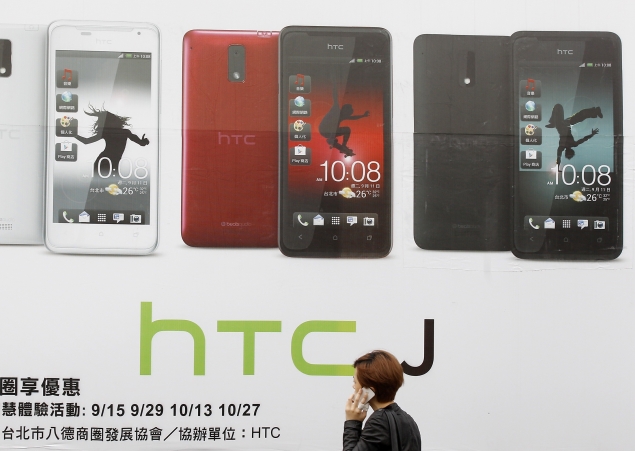
Peter Chou, CEO of Taiwan smartphone company HTC Corp, will on Monday launch what he hopes will be a major boost to both a backward tech sector in Myanmar, his country of birth, and to his company's share of one of the few untapped mobile markets a phone that locals can use out of the box.
Until now, Chou says, Myanmarese users of mobile phones and computers must install fonts in their own language, a process that is cumbersome, often invalidates the device's warranty and has, he says, slowed innovation and the embrace of technology.
HTC has instead teamed up with a local distributor and a software developer to customise Google's Android operating system so its devices display local fonts and sport a dedicated and, Chou says, intuitive, Myanmar language onscreen keyboard.
"You don't have to spend two months to learn how to type it," Chou said in an interview ahead of the launch. "You just type it. We want to give people here a computing device they don't have to learn. They just try it, they just use it, they just get it."
Myanmar IT experts say that while the country's alphabet is no more complex than some other Asian scripts, a failure to agree how to apply an international standard for language symbols called Unicode to existing versions of the computer font has made it difficult to bake the language into software.
As a result, web pages and apps will often be unreadable.
Big challenges, little penetration
The issue of fonts may seem a basic one, but reflects the challenges Myanmar faces in catching up with its neighbours as it sheds decades of military control over politics and the economy. Myanmar has one of the lowest mobile penetration rates in the world, with only 3 percent of the population owning a phone in 2011, according to the World Bank. In neighbouring Bangladesh, 56 percent of people have a mobile phone.
The issue of fonts may seem a basic one, but reflects the challenges Myanmar faces in catching up with its neighbours as it sheds decades of military control over politics and the economy. Myanmar has one of the lowest mobile penetration rates in the world, with only 3 percent of the population owning a phone in 2011, according to the World Bank. In neighbouring Bangladesh, 56 percent of people have a mobile phone.
When IT enthusiasts met last year for a conference on the future of technology called Barcamp Yangon, much of the discussion revolved around such basic issues, participants said. With at least two competing types of font software available, disagreements remain.
The problem is worse on smartphones, says Soe Ngwe Ya, general manager of KMD, HTC's distribution partner for the new phones. In order to install such fonts on mobile devices users must first "root" the phone, effectively bypassing the manufacturer's controls on customizing the phone's operating system. That often invalidates any warranty. "It's a major issue," he says.
HTC also hopes it can claw back some ground from its biggest competitor in Android phones, Samsung Electronics, which has established a first mover advantage in Myanmar.
Samsung has at least two distributors for its handsets and its advertisements are visible around the capital. Soe says KMD will act as HTC's distributor, open a flagship store and service HTC users.
Chou, who was born in Myanmar but left to work and study in Taiwan more than 30 years ago, says that at least for now the Myanmar fonts and keyboard will only be available on HTC devices. He denied that this undermined his claims of contributing to his homeland.
"While sometimes you can be idealistic," he said, "the first thing you have to show the people is something to get excited about."

No comments:
Post a Comment